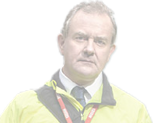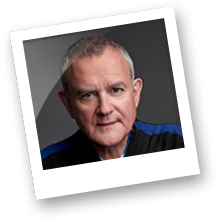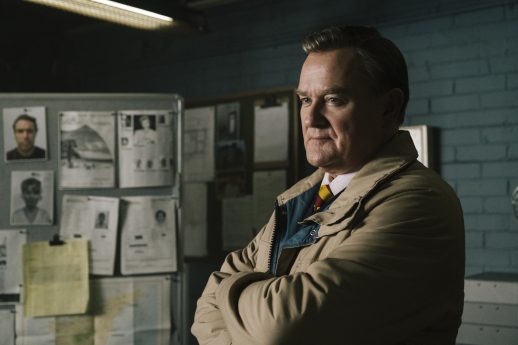Interview for the BBC Press Release
The Gold series 2 cast and creatives discuss “unpredictable and surprising” second series
Why do you think The Gold appeals to viewers?
Gold is a mysterious metal. It’s been around forever, has survived every economic crash and adorns bodies all around the world. It’s synonymous with luxury and wealth. If you’ve got gold, you’re associated with the Midas touch. That’s the myth and the allure of this extraordinary commodity.
So, when a huge robbery involving gold takes place, your imagination is immediately sparked. In series one we learned about the process of smelting, bringing the proceeds to market, laundering the profits of the sale, and the effect of that money on people and on the economy. Goodies and baddies, cops and robbers.
What can you tell us about Brian Boyce and some of the trial and tribulations he experiences in series two?
In series two we see the ripple effect of even more gold being smelted and even more money being laundered. Our principal characters return and we see the effect the gold is having on them and the impact the proceeds of the robbery has around the world.
Because the money is spreading so far and wide it proves increasingly difficult for Boyce and his team to keep up, especially as their operation – already criticised for being the most expensive in police history – is facing pressure to scale back in the face of limited results. As far as his superiors are concerned, Boyce hasn’t put enough of the bad guys behind bars.
In reality the police investigation, extraditions and trials went on for a good ten years after the initial robbery and within that time Boyce was facing retirement. He so wanted to finish the job before retirement came but it wasn’t to be. So that pressure underlies Boyce’s story, as does the pressure from ‘upstairs’ to produce results, as the perceived runaway costs of the investigation are weighed against the apparently diminishing returns. Dogged police work wins the day.
This series is set in the 90s – how does it compare in the UK and in the international scenes in this series?
In the 90s in the UK, we’re entering a recession, it’s grey, gloomy and everyone’s a bit down in the mouth. In contrast, you’ve got John Palmer and the others enjoying the Life of Riley in Tenerife and even further afield, living off the fat of their exploits. This provides a striking visual contrast: the bleak and drab world of Boyce’s operations centre, now a basement in the Tottenham Court Road, juxtaposed with Palmer’s sunshine villa in the Canary Islands. Where is justice? Does crime in fact pay?
What are the key themes of the second series?
The word that springs to mind is consequences. The consequences of the gold having been stolen and the extraordinary ripple effect that it has, not only through the British economy but around the world. We see its impact in Tenerife, through John Palmer’s operations, we see how it is developing in Tortola in the Caribbean and we also have the Russian mafia getting involved. The implications are huge, and the consequences of the actions of six men in a van really do have a worldwide impact.
Can you explain the dynamic within the Flying Squad this series?
Boyce can be seen as a benign sometimes irritated figure, rolling his eyes at his two protégés, Jennings and Brightwell. His attitude changes, though, as he acknowledges in his own taciturn way that they are good at their jobs.
The dynamic between Jennings and Boyce in particular is quite endearing, almost a father-daughter relationship. She’s sometimes like an enthusiastic puppy who needs bringing back into line. Boyce often utilises his own brand of wry cynicism to remind her of her training and her place on the team. Brightwell is like a loyal, dogged place hound. He’s always on the case, firm, committed and I love the dynamic that’s developed between Jennings and Brightwell. The operation to which they’re yoked, that was once very much in the public eye, has been downgraded. But they struggle on regardless, feeling for Boyce as he does battle with his superiors who want results. Boyce’s reliance on his protégés, Jennings and Brightwell, becomes key.
But what really shifts the dynamic is the arrival of Tony Lundy on the team. He couldn’t be more different to Boyce. He gets results, put it that way. Boyce ends up having a grudging respect for him, too. As long as Boyce doesn’t know how he’s got this or that result, he’s prepared to let him get on with it and do it his way. It’s a really interesting relationship. Lundy is maverick, he doesn’t do things by the book. He’s the sort of man Boyce could never be or want to be, but Lundy achieves things on the edge of the law that bring the kind of results Boyce and his team so desperately need.
Critically-acclaimed factual drama The Gold will return on Sunday 8 June. All episodes will be available to stream on BBC iPlayer from 6am, ahead of the series starting on BBC One at 9pm that night.









